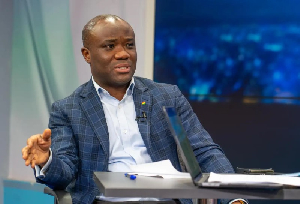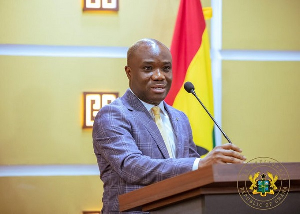The self-obsessed actions of a footballing mercenary or further proof that Sunderland are incapable of holding on to the players they need to propel them into the upper reaches of the Premier League?
Asamoah Gyan’s shock departure from the Stadium of Light can be interpreted in a number of ways.
On the one hand, an increasingly unsettled Gyan has swapped the profile and prestige of the English top-flight for a £200,000-a-week loan deal with United Arab Emirates side Al-Ain, whose average attendance currently hovers below the 1,000 mark.
To paraphrase TV chat show host Mrs Merton, ‘So Asamoah, what first attracted you to the billionaire owners who run Al-Ain?’
“He’s Africa’s Player of the Year, he’s a hero in his own country, and he’s left the biggest stage in the world to go and play in the Emirates,” said a clearly furious Steve Bruce.
“No disrespect to the country in question, but I think we can all draw our own conclusions about why he’s done that.
“I can’t understand the logic. Everybody has ambitions, and if it had been Real Madrid-and I spat out my porridge the day that one was mentioned-I could understand it. I can fully understand if people want to go and play for Manchester United and Chelsea and get to the top of the tree.
“This baffles me, but I’ve never kept a player who didn’t want to play for one of my football clubs, and I wasn’t about to start here. If you don’t want to play for the team and the jersey, then what’s the point? We decided to take the best deal possible and we’ll move on.”
Money was clearly a major motivational factor in all of this, and Bruce is right to highlight the role played the legion of ‘representatives’ and hangers-on who surrounded Gyan from the moment he made a club-record £13m move to Sunderland little more than a year ago.
It was they who persuaded him to approach Black Cats chairman Niall Quinn to seek a wage increase in the wake of March’s Wembley international between England and Ghana, a match Bruce is right to identify as one of the catalysts in the events that culminated on Saturday.
Quinn rejected the demand, citing the fact that Gyan had not even completed the first year of his existing four-year deal. As a result, resentment began to set in.
It already existed anyway, partly as a result of Bruce’s reluctance to start with the striker in the early days of his Sunderland career, partly because Darren Bent’s January exit had robbed the Black Cats of one of their few world-class performers in Gyan’s eyes, and partly because the club’s African contingent was about to break up with the anticipated departure of Sulley Muntari and John Mensah.
Gyan wanted out, telling African reporters in May: “Sunderland’s team spirit that I know is not the same. Things are not organised – I’m not too happy there.”
There was contact with officials from Turkish clubs Galatasaray and Fenerbahce, but a deal could not be agreed.
With Sunderland aware of Gyan’s discontent, discussions took place with Marseille.
But all the while, and largely out of Sunderland’s knowledge, the foundations were being laid for this weekend’s move to Al-Ain.
When Bruce and Quinn were informed about it in the early hours of Saturday, it was effectively presented as a fait accompli.
A couple of hours later, the club were hurriedly rushing out a press release to confirm Gyan had gone.
So far, so unfortunate for Bruce. But this is not an isolated incident.
In January, Darren Bent left Sunderland for Aston Villa having submitted a formal transfer request in order to force through a move away from Wearside.
Six months earlier, Kenwyne Jones swapped Sunderland for Stoke, having lost all affinity for the Black Cats.
To lose one star striker can be considered unfortunate.
To lose three in the space of 18 months suggests that something more fundamental is wrong.
Does Sunderland’s financial position mean they will never be able to hold on to top-class talent? Will they have to become more flexible with the upper reaches of their pay ceiling if they are to retain their marquee signings?
Possibly. But other clubs with similar constraints seem to be much better at keeping their key players content despite the absence of an £80,000-a-week pay packet.
Does Bruce struggle to control the bigger egos in his dressing room?
There is no doubt that his handling of Jones was questionable, with a failed attempt to sell the striker in January 2010 undoubtedly contributing to the player’s sense of frustration.
The Bent situation was different-Bruce could hardly have done more to make the striker feel wanted-yet the end result was the same, a player absolutely desperate to leave.
Gyan has been equally unsettled for the best part of half a year, but isn’t man management an integral part of a manager’s art? And isn’t it supposed to be one of Bruce’s strong points?
Wayne Rooney was desperate to leave Manchester United in January.
Some adept manoeuvring from Sir Alex Ferguson and eight months later, he is the leading scorer in the Premier League.
Perhaps Gyan was never going to stay no matter what was said to him, and Quinn’s refusal to agree an improved deal undoubtedly restricted Bruce’s bargaining ability.
But the upshot remains that Sunderland have lost their club-record signing and must negotiate at least the next four months with loanee Nicklas Bendtner and the untried Connor Wickham and Ji Dong-won as their frontline centre-forwards.
“He (Gyan) could come back, but I can’t see it happening,” said Bruce.
An unsatisfactory end to a thoroughly unsatisfactory episode.
Sports Features of Monday, 12 September 2011
Source: Northern Echo

















